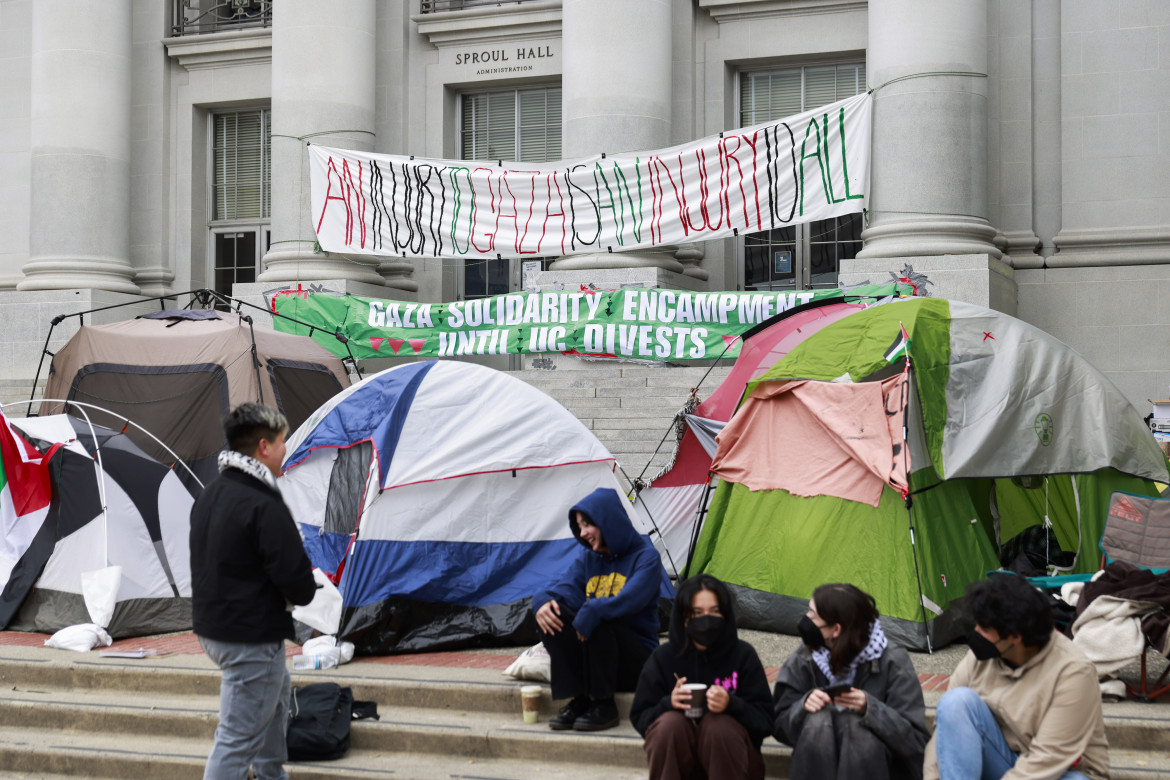Commentary
Berkeley reactivates its historic role, shouting its moral outrage
Just as in the 1960s, discussing social justice in a university means first and foremost addressing the tangle of the relationship between technoscience and politics.

Berkeley, the university where I teach, has not featured prominently in the news in recent days. Which might be surprising, given its students’ long history of political engagement and its role in defining the radical legacy of the 1960s. Instead, we have – sadly – seen many images from Columbia University, UCLA and other universities.
However, here at Berkeley we also have a substantial pro-Palestinian encampment engaging in peaceful protest and various awareness-raising activities, including readings of Palestinian poetry and literature and informal lectures by fellow historians of the Middle East.
The encampment grew gradually on the lawn surrounding Sproul Hall, the seat of the university’s administration and a building that became symbolic of the Free Speech Movement, which began the season of student protests in 1964. In 1967, on the steps of this building, Martin Luther King condemned the Vietnam War; in 1985, 156 participants in a sit-in calling for divestment from apartheid South Africa were arrested here. Today’s students are well aware of the symbolic value of that space and have brought it back to life using their own bodies, making themselves vulnerable as expected evictees.
A typical feature of Berkeley student protests is linking their cause to those of others nearby. Unions, veterans’ associations and former students were also invited, some of whom decided to pitch their tents as well, creating a kind of offshoot of the main camp. The idea is that there are underlying values – such as social justice – that bind together generations of students and the local community.
Just as in the 1960s, discussing social justice in a university means first and foremost addressing the tangle of the relationship between technoscience and politics. It is no coincidence that at the height of the Cold War, the first protests took place at Berkeley – Oppenheimer’s university – with the 1964 student leader claiming the right to talk about politics at a university that had become an inhuman “knowledge factory.” Today, Berkeley sends more graduates to Silicon Valley than any other university, and the university research system continues to play a key role in America’s military-industrial complex. The speakers set up at the encampment often play the buzz of military drones flying over Gaza.
Comparing the handling of the protests across different campuses speaks volumes. University authorities are in a difficult situation, caught between student demands, pressure from private donors and pressure from local and national politicians. Universities engage in investments through hedge funds, making it a complicated task to divest from specific sectors. Furthermore, all this is against the backdrop of an open attack against university autonomy by various members of the Republican Party.
Some deans, failing to manage the situation, or aiming first and foremost to protect their jobs, have outsourced the solution to the problem to a militarized police force, with the effects we have seen. But other paths are possible, as the recent agreements reached at Northwestern and Brown universities show. Pursuing such avenues requires taking students seriously, instead of describing them as naive, ignorant, criminal, or fifth columnists – a playbook not at all new and much employed by journalists and politicians of various stripes.
No, these are not infiltrated agitators, they are really our students: brave, intelligent, idealistic (obviously!), maximalists in their slogans as their predecessors have been, and shocked by the chasm between what they see happening in the world and the aspirations towards justice they find in the texts they are studying. They are shouting their moral outrage to the world, the way students shouted it when they protested against apartheid in South Africa, the war in Vietnam, racial segregation in the U.S., as well as those who demanded free speech on campuses – inspired by the (illegal) civil disobedience tactics of Black activists in the early 1960s.
Now, as then, the hearts of students are in the right place. It is we, the adults, who have a lot of explaining to do.
Originally published at https://ilmanifesto.it/berkeley-riattiva-lo-spazio-della-protesta on 2024-05-07
